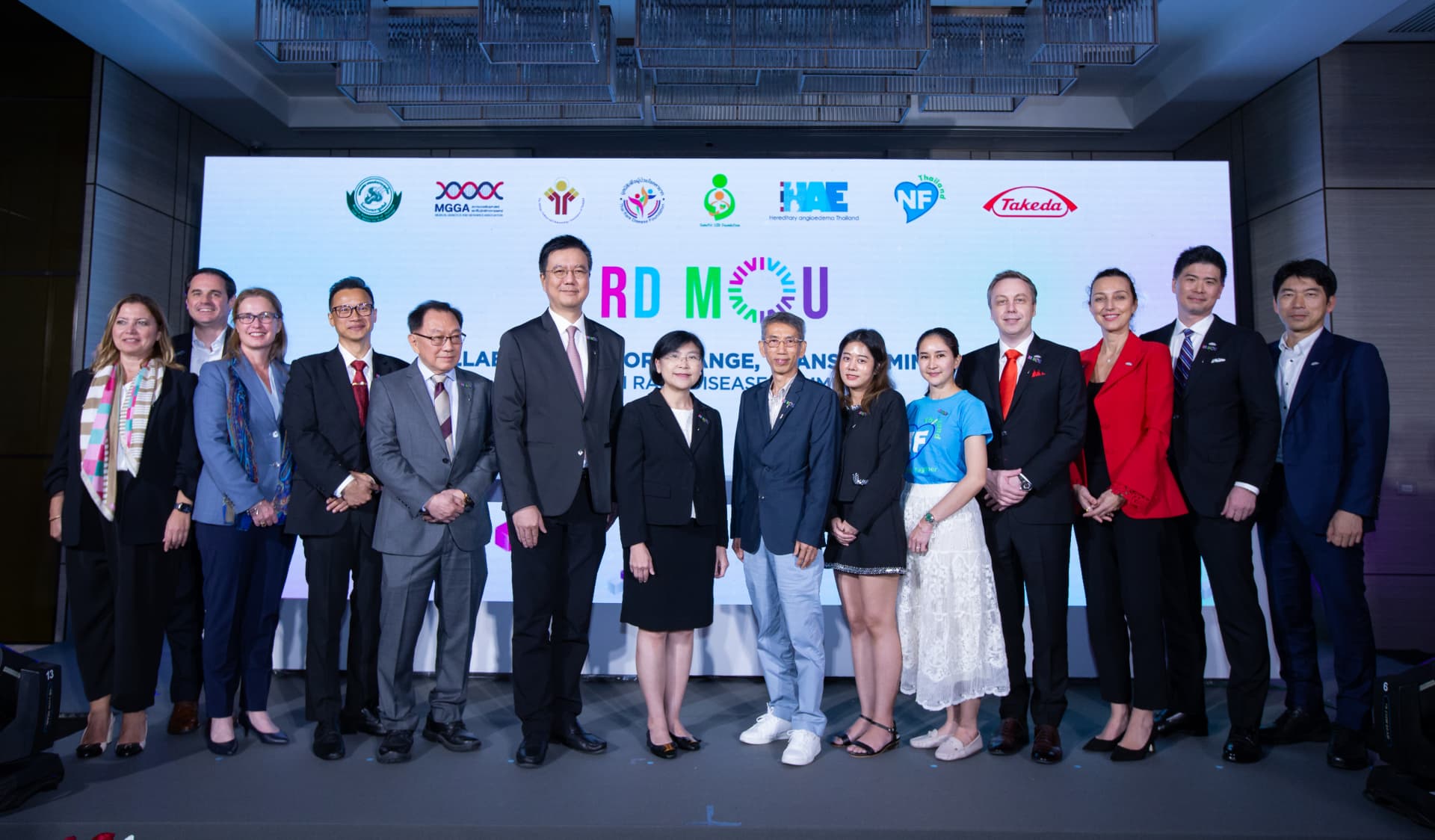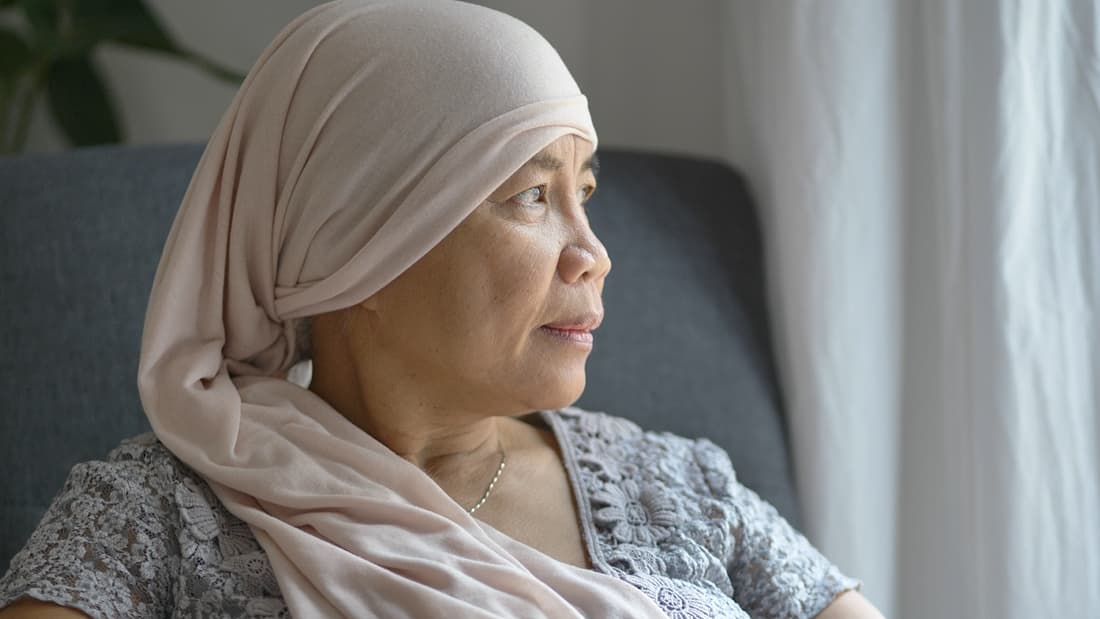Access to Medicines - Strengthening Healthcare Systems | Takeda Pharmaceuticals
Strengthening Healthcare Systems
Sustainable and equitable access to medicines and vaccines can only be achieved through a deep understanding of both the patient needs and the ability of the local healthcare system to deliver it.
We take a holistic approach to strengthening healthcare systems, providing local solutions, built on global insights.
Central to this approach is collaboration with partners and relevant government authorities to ensure initiatives are sustainable and deliver lasting impact at scale.
Discover more about our Healthcare System Strengthening programs, which create societal value for local communities and transform the lives of patients by improving access to the healthcare they need.
Transforming Rare Disease Access across Southeast Asia1
Despite what the term implies, rare diseases are more common than many people realize. In fact, more than 45 million people across Southeast Asia – or about 9 percent of the region’s population – are affected by a rare disease.2
These tens of millions of patients encounter critical barriers when accessing the treatment they need, ranging from limited awareness to frequent misdiagnoses. Given the widely dispersed but relatively small patient base for each rare disease, there are disproportionately few treatments and medicines available across the region.3
To help address this challenge, in March 2024, Takeda convened 600 experts, policymakers, and patient advocates in Bangkok for the 2nd Southeast Asia Rare Disease Summit. The insights from the summit, initiated, organised and funded by Takeda, culminated in a white paper that summarizes the key barriers faced by patients with rare diseases in the region. To learn more, please see the full white paper here.
During the discussions, advocacy groups from across the region shared case studies, such as the introduction of newborn screening for rare diseases in Singapore, the optimization of Thailand’s referral system to improve care access, the promotion of rare disease policies in Taiwan, and the establishment of patient assistance networks in Malaysia. This exercise was intended to illustrate the complexity of barriers to access, showcasing success factors that could support implementation efforts elsewhere.
Following the summit and based on the recommendations from the white paper, Takeda renewed a strategic Memorandum of Understanding (MOU) with the public health authority and patient advocacy groups in November 2024. This MOU will focus on four key priorities: 1) raising awareness of rare diseases; 2) improving diagnostic capabilities; 3) supporting training of medical professionals; and 4) amplifying the voices of patients to encourage a supportive policy framework.
While this MOU is an important step, it signals just the beginning of a sustained effort needed by all stakeholders to improve rare disease care in Thailand – and indeed across Southeast Asia.
- “The Southeast Asia Rare Diseases Summit provides us with a much-needed platform to discuss best practices around collaborations between government, non-government organisations and the business sector to discuss rare disease issues and initiate country-specific national rare disease action plans. We need to take tangible actions together to ensure that no patient is overlooked.”
Professor Thanyachai Sura, M.D., President of Asia-Pacific Society of Human Genetics (APSHG) and President of Medical Genetics and Genomics Association (MGGA)
- This article should not be used for diagnosing or treating a health condition or disease. It is not intended to substitute for consultation with a healthcare provider.
- https://ojrd.biomedcentral.com/articles/10.1186/s13023-016-0460-9
- https://pubmed.ncbi.nlm.nih.gov/27484654/

Developing holistic solutions to enhance healthcare systems in the Philippines
Drawing upon the insights and lessons gathered from the Access to Medicines (AtM) Summit 2024 in Manila, we developed a white paper to summarize the current challenges facing patients, and to outline locally led initiatives that are integrated with the Philippines’ healthcare systems to accelerate sustainable, equitable access for those who need it.
Charting the Course to Sustainable and Equitable Access to Medicines in the Philippines
In 2024 Takeda hosted the 2024 Access to Medicines Summit in Manila. The Summit convened more than 200 stakeholders, including government representatives, healthcare experts, NGOs, and patient advisory groups, with the common purpose of exploring ways to accelerate sustainable and equitable access to innovative medicines in the Philippines.
As an output of the Summit participants developed a suggested roadmap that summarizes the key healthcare challenges Filipino patients face, identifies ongoing initiatives to improve access, and outlines the recommended next steps which have the potential to unlock barriers to sustainable, equitable access.
The highlights of this roadmap – the first step towards implementation – are outlined below.
Barriers to Access
There are a number of barriers that prevent equitable access to medicines across the patient journey. The country’s island geography complicates the development of a comprehensive healthcare infrastructure, particularly in remote regions.1 Misconceptions about diseases and insufficient patient education2, coupled with supply chain challenges, lead to inconsistent medicine distribution and inventory issues.3 Additionally, the high cost of healthcare remains a prohibitive barrier for many,4 despite rising incomes.
Ongoing Initiatives to Improve Access
The Philippines' Universal Health Coverage law represents a significant step towards equitable healthcare for all Filipinos. With a comprehensive 8-Point Action Agenda,5 the nation is focusing on enhancing health outcomes and access to care. Initiatives like the establishment of new primary care centres, improvement of mental healthcare, and strengthening of crisis resilience highlight the country's commitment to health sector reform and gathering momentum in delivering on government promises.
Roadmap to Addressing Barriers to Access
The roadmap synthesizes key ideas proposed by participants of the summit, aimed at guiding action to implement locally led, integrated, and sustainable access solutions. Proposed initiatives include the adoption of interoperable electronic medical record systems to streamline patient information, the reinforcement of health sector employment rights, and the establishment of stringent criteria for specialty and cancer centres.
References
- Challenges in public health facilities and services: evidence from a geographically isolated and disadvantaged area in the Philippines
- Prevalence of Limited Health Literacy in the Philippines: First National Survey
- Inventory Management of Drugs and Medicines of Four Devolved Hospitals of the Province of Bohol for CY 2022
- Health expenses remain a big burden for Pinoys despite UHC
- Philippine Development Plan 2023-2028: Economic Transformation for a Prosperous, Inclusive, and Resilient Society

Improving Health Systems and Access for People Impacted by NCDs (Non-Communicable Diseases) in Kenya
In partnership with the Kenyan government and local healthcare leaders, we piloted a three-year initiative, the Blueprint for Innovative Healthcare Access, to address and improve local standards of care and access barriers for people living with NCDs in Meru County, Kenya.
Delivering a Comprehensive End-to-End Access Approach to Strengthen Healthcare Ecosystems in Rwanda
Building on the success of our pilot Blueprint initiative in Kenya, we expanded the approach to other countries across sub-Saharan Africa, including Rwanda, allowing us to further broaden access and scale our impact across the entire patient journey.
